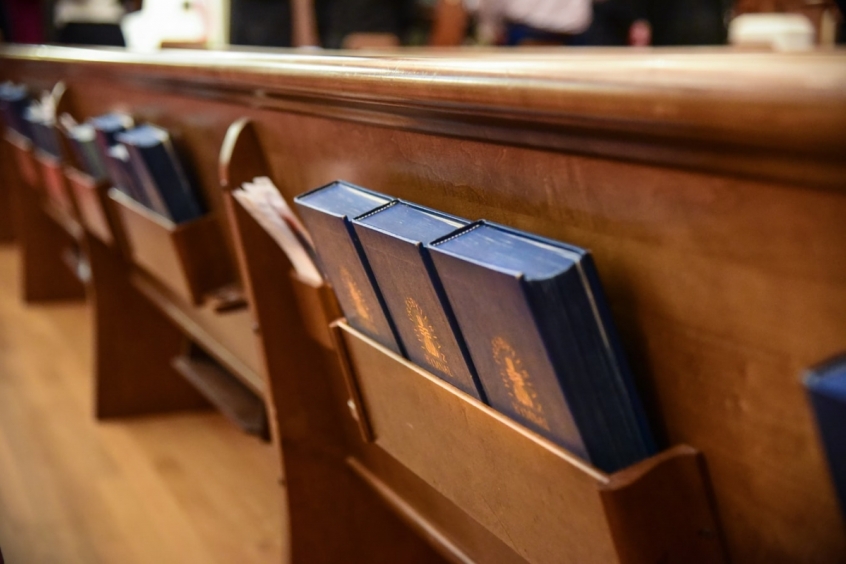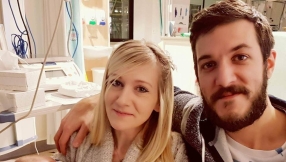
Christian leaders are pursuing a judicial review after the Government forced churches to close during England's second national lockdown.
The group of 122 church leaders, who come from different denominations and traditions, say that the ban on public worship was "unlawful" because it breached Article 9 rights, including the right of Christians to manifest their religion or beliefs in communal worship, teaching, practice and observance.
They will also challenge the closure of churches in Wales during its three-week 'firebreak' lockdown that ended on 9 November.
In the second lockdown currently in force across England, places of worship are only allowed to open for funerals, individual prayer, the broadcast of services, and the provision of formal daycare or key social services.
The church leaders, who are being supported by the Christian Legal Centre, argue that it is unreasonable to permit places of worship to open for secular purposes but not spiritual.
They also state the the Government has failed to explain why allowing places of worship to open would risk contributing to the spread of Covid-19.
"The English and Welsh Governments have now introduced two successive sets of lockdown measures which have completely prohibited and criminalised public communal worship, a core aspect of religious life for the Claimants and their congregations," their claim reads.
"With these measures, the Governments have inflicted a terrible human cost, without rigorous consideration of less onerous restrictions, and as part of a package which leaves places of worship open for secular activities."
Pastor Ade Omooba, who is leading the legal challenge, said, "We have been left with no alternative but to pursue a judicial review on this crucial issue and at this significant moment for the freedom to worship in church in this country.
"We call on the government to recognise the vital importance of church ministry and the principle of church autonomy from the state."
He added that churches "can't be relegated to a social service".
"Never in our history have our churches closed – not during wars, plagues or famines. Instead we have been places of respite and hope," he said.
"The government seems not to understand the very important and long held constitutional position of the independence of church and civil government."
Bishop Michael Nazir-Ali said there had been "widespread unease" about the "lack of evidence" and consultation with church leaders.
"Church leaders recognise the seriousness of this pandemic, and that the government need to take the best scientific advice about the measures that are necessary to prevent the spread of the virus, especially to vulnerable groups," he said.
"This task has to be held in tension with the ancient liberties of the church which have been won through hard struggle over the course of our history. These liberties include freedom of belief, expression and worship.
"The principle of the freedom of worship needs to be maintained and churches have been assiduous in maintaining safety in buildings and among worshippers."
He added: "Church leaders see collective worship, not as an optional extra, but as vital to the mental and spiritual health of believers, especially for the lonely and vulnerable."
Other Christian leaders to have spoken out in opposition to the church closures include the Archbishop of Canterbury, Justin Welby, and Catholic leader Cardinal Vincent Nichols.
Following the first lockdown earlier this year, over 1,500 church leaders signed an open letter to Prime Minister Boris Johnson urging him not to close churches again.
Former Prime Minister Theresa May expressed concern in Parliament that the closure of churches during the lockdown could set a dangerous precedent.
"My concern is the government today making it illegal to conduct an act of public worship for the best of intentions, sets a precedent that could be misused for a government in the future with the worst of intentions. It has unintended consequences," she said.
Chief scientific advisers Professor Chris Whitty and Sir Patrick Vallance last week admitted that they "haven't got good evidence" for the closure of churches.
"This is not a very exact science at all," they said.
Dr Gavin Ashenden, a former chaplain to the Queen, said: "The context in which unilateral closure of churches and the removal of the right to worship as one's conscience dictates reflects the history of the last 1,000 years of our nation.
"This period has been punctuated by attempts by the government to control, restrict and prohibit the actions of Christian worshippers. From the assassination of the Archbishop of Canterbury in 1170 through to the execution of both Protestant and Catholic dissenters in the 16th century, Christians have fought and died for the right to worship and order their spiritual and civic affairs according to their consciences.
"Church leaders as their successors have a duty both to ensure we are faithful to their memory and sacrifices and in our generation to be faithful to our God and our consciences. Such fidelity sets us in polite but determined opposition to any government that closes the doors of churches, prohibiting access to the sacraments and our corporate responsibilities to God and to one another."













